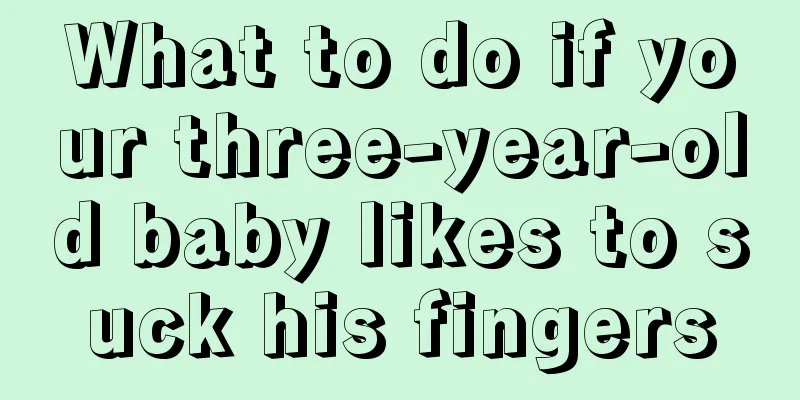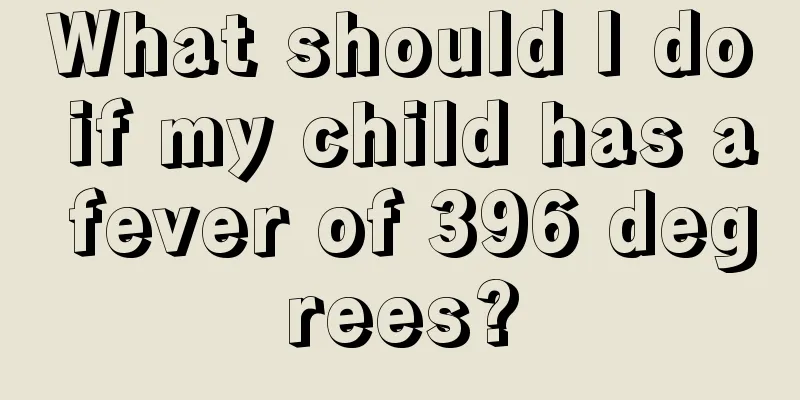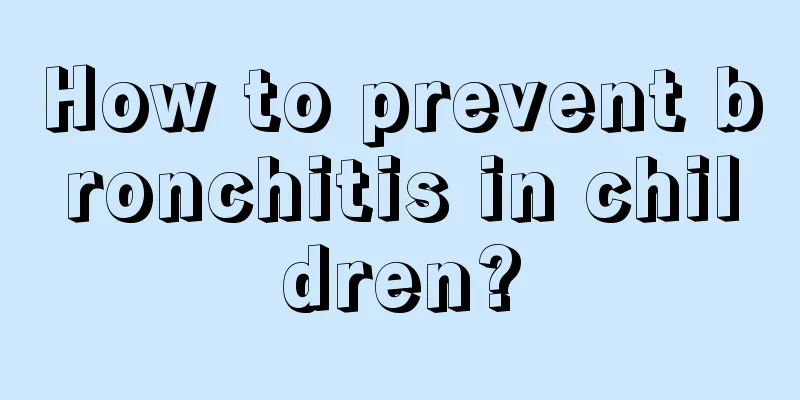What to do if your three-year-old baby likes to suck his fingers

|
If you find that your three-year-old baby particularly likes to suck his fingers, you must ask them to change this habit. Although this is a physiological reflex, if your baby sucks his fingers frequently, it will definitely be bad for their health. It will also allow a lot of bacteria to enter the body, thus causing some diseases. Therefore, you must change this bad habit as soon as possible and do not let them become dependent on this behavior. When babies suck their fingers, medically known as finger sucking, it refers to the behavior of repeatedly or involuntarily sucking the thumb, index finger or other fingers. For normal babies aged 0 to 4 months, sucking anything that touches their lips is a normal physiological reflex. Finger sucking usually starts in infants aged 3 to 4 months, reaches its peak at 7 to 8 months, and gradually subsides after 2 years of age. Thumb sucking is an abnormal behavior after the age of 4, which usually occurs when the child is lonely, tired, depressed, sleepy, or hungry; the frequency increases during separation anxiety or illness. In the early stages of life, any object touching the baby's lips will trigger a sucking reflex, with the proportion of sucking fingers being as high as 90%, which is a normal physiological phenomenon. Babies aged 1 to 2 months cannot open their hands on their own or put their fingers in their mouths. So during this period, the baby's thumb sucking will be manifested by fist sucking. The baby will put the clenched fist to the mouth and suck it, and sometimes most of the fist can be put into the mouth. Babies around 3 months old begin to learn to suck their fingers, usually the thumb, or put the thumb and index finger in their mouths at the same time. The completion of these complex movements is a signal of the baby's intellectual development and one of the signs that the baby has entered the stage of preparation for finger function differentiation and hand-eye coordination. In infancy, this occasional or short-lived thumb sucking should not be considered pathological. When you find your baby sucking his fingers, don't be nervous or worried, because more than half of babies will stop sucking their fingers around 7 months old. All you can do is wait patiently, there is no need to stop it forcefully. If it is stopped forcibly, it will easily have a negative reinforcement effect. What parents need to do is help their babies keep their hands clean to reduce the risk of hand-to-mouth transmission of diseases. Keep the area around your lips clean and dry to prevent eczema. Children who persist in sucking their fingers after the age of 4 may affect the development of their mandible, lead to malocclusion, and even affect chewing, swallowing, or pronunciation. Behavioral therapy should be carried out. You can gradually eliminate the problem by ignoring it appropriately, distracting the child’s attention, or praising and encouraging the child when the child stops sucking his fingers. |
<<: What to do if your three-year-old baby eats slowly
>>: How tall is a one year old baby?
Recommend
What is the best age for weaning babies?
We all know that breastfed babies have stronger b...
How to treat acute suppurative tonsillitis in children
Tonsillitis is a common disease in the throat. Th...
What to do if your two-year-old baby is timid
If a two-year-old baby is timid, parents should e...
Five-month-old baby sweats on the back of his head
Sweating is a normal physiological phenomenon. Ap...
Is it good for children to drink soy milk powder?
Soy milk is a drink that is deeply loved by peopl...
What to do if nephrotic syndrome relapses in children
Nephrotic syndrome is common in teenagers. In fac...
What to do if your three and a half year old baby has toothache
When an adult has a toothache, they feel like the...
At what age is it normal for children to lose their teeth?
We know that people will experience tooth replace...
What is the development standard of a 42-day-old baby?
The health of the baby is the greatest comfort to...
Diet therapy for allergic asthma in children, these recipes are very valuable
If allergic asthma occurs in children, parents ar...
What to do when your baby picks his nose
In life, many young parents always wonder about t...
Why is it that my baby has only one tooth?
As the baby grows, the nutrients accumulated in t...
What should I do if my baby has a low-grade fever for several days?
It is quite common for babies to have a fever. If...
48 What to do if your child has stomach discomfort and vomits
Now everyone's living conditions are differen...
Early education of language and crawling skills for one year and eight months old babies
A one year and eight month old baby is almost abl...









